You are viewing an old version of this page. View the current version.
Compare with Current
View Page History
« Previous
Version 10
Next »
Your Credentials
To determine your credentials in Azure:
- locate your Log Analytics workspace.
- Select Agents management.
- To the right of Workspace ID, select the copy icon, and then paste the ID as the value of the Customer ID variable.
- To the right of Primary Key, select the copy icon, and then paste the ID as the value of the Shared Key variable.
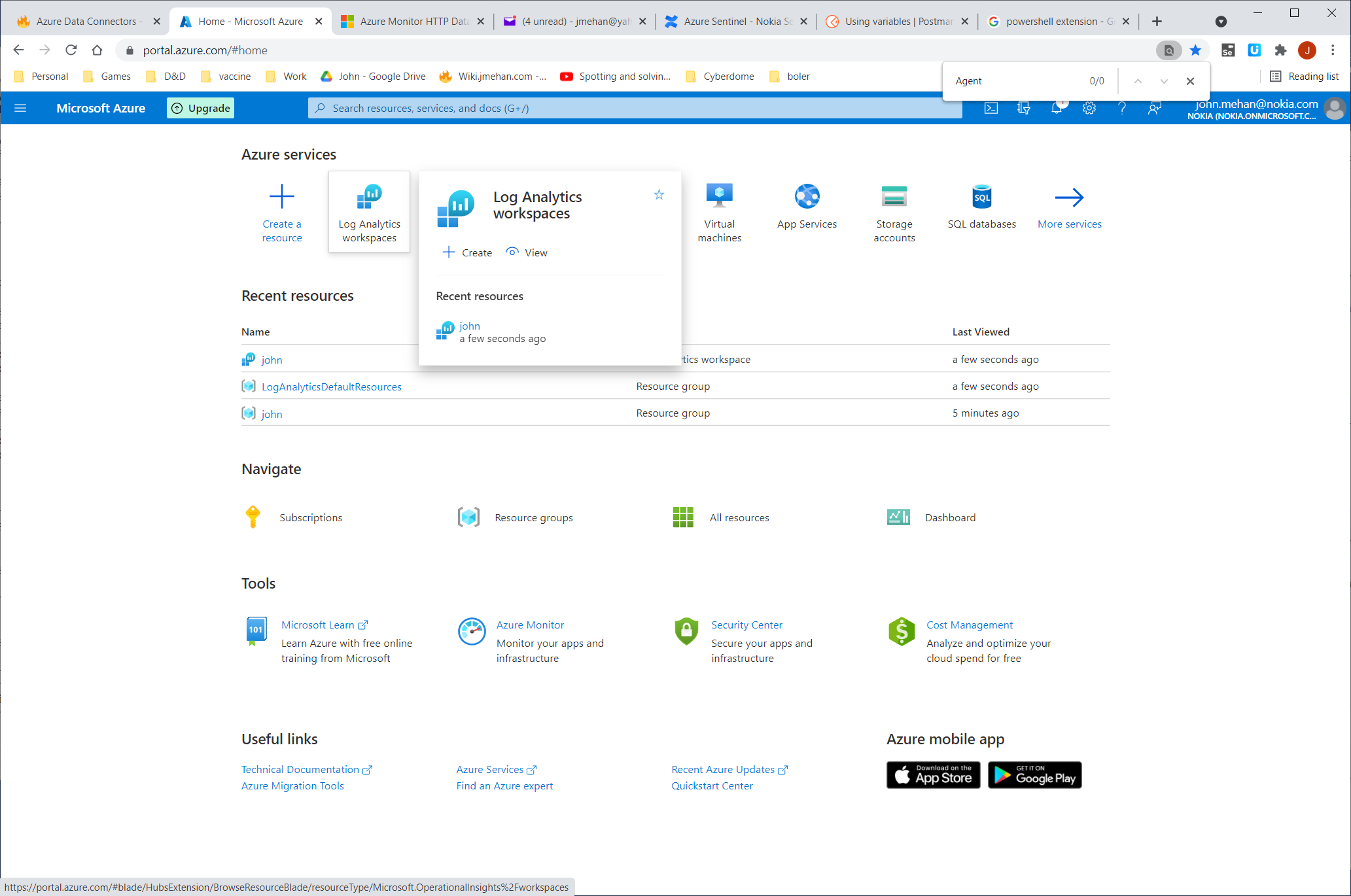
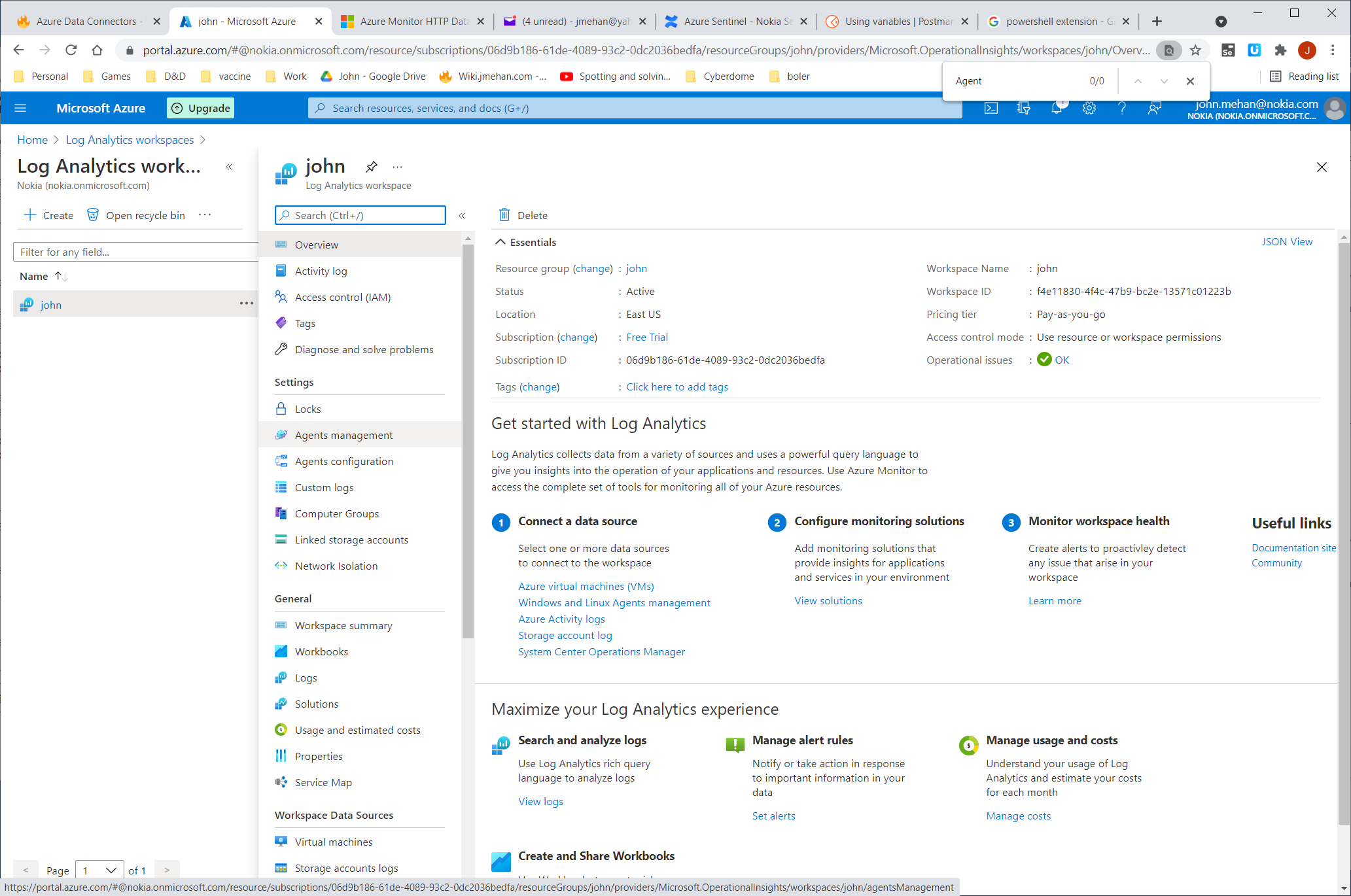
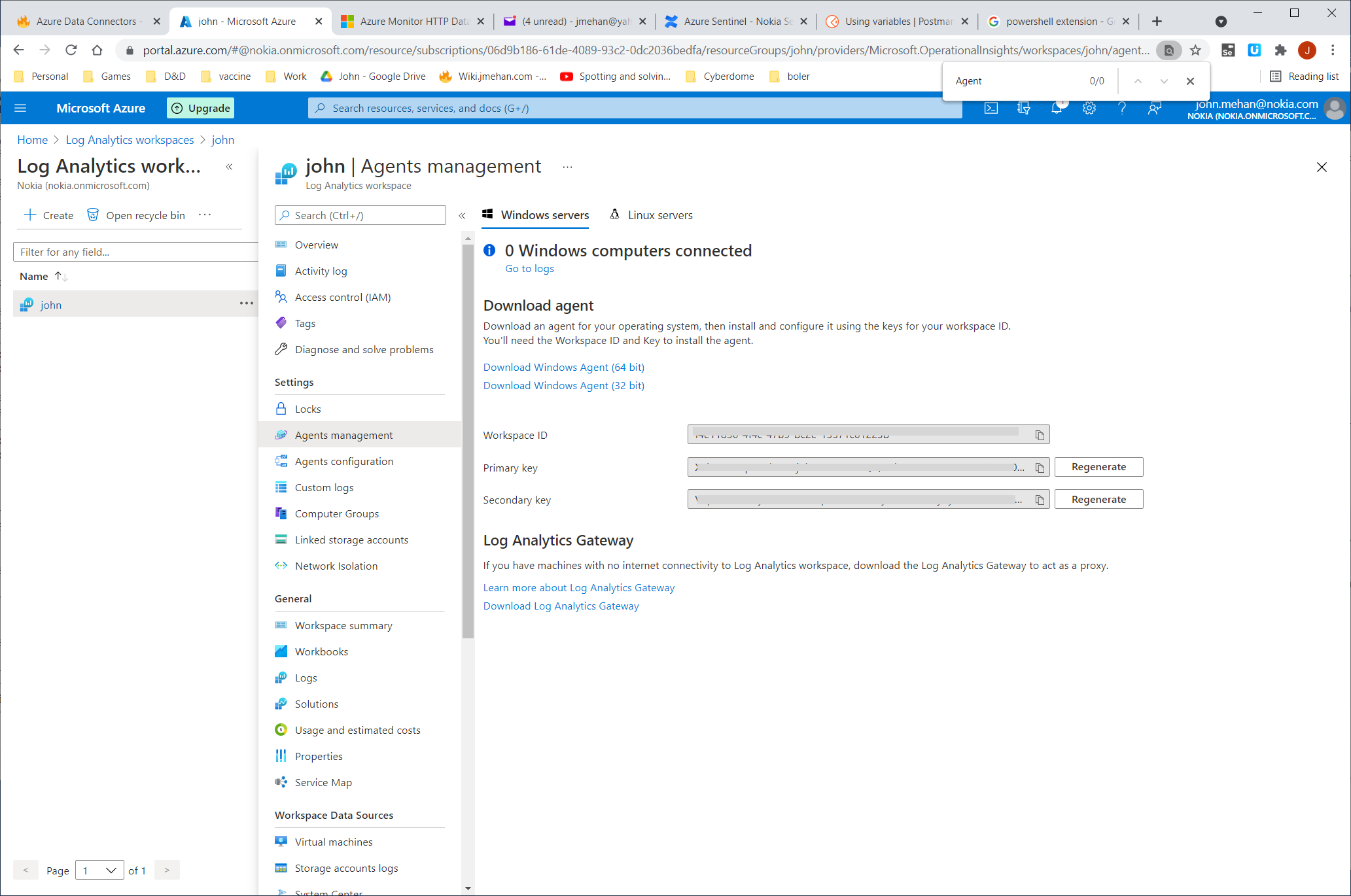
Azure HTTP Data Collector API
https://docs.microsoft.com/en-us/azure/azure-monitor/logs/data-collector-api
Sample powershell script to push data to your workspace.
LogType: MyRecordType_CL
# Replace with your Workspace ID
$CustomerId = "xxxxxxxx-xxxx-xxxx-xxxx-xxxxxxxxxxxx"
# Replace with your Primary Key
$SharedKey = "xxxxxxxxxxxxxxxxxxxxxxxxxxxxxx"
# Specify the name of the record type that you'll be creating
$LogType = "MyRecordType"
# You can use an optional field to specify the timestamp from the data. If the time field is not specified, Azure Monitor assumes the time is the message ingestion time
$TimeStampField = ""
# Create two records with the same set of properties to create
$json = @"
[{ "StringValue": "MyString1",
"NumberValue": 42,
"BooleanValue": true,
"DateValue": "2019-09-12T20:00:00.625Z",
"GUIDValue": "9909ED01-A74C-4874-8ABF-D2678E3AE23D"
},
{ "StringValue": "MyString2",
"NumberValue": 43,
"BooleanValue": false,
"DateValue": "2019-09-12T20:00:00.625Z",
"GUIDValue": "8809ED01-A74C-4874-8ABF-D2678E3AE23D"
}]
"@
# Create the function to create the authorization signature
Function Build-Signature ($customerId, $sharedKey, $date, $contentLength, $method, $contentType, $resource)
{
$xHeaders = "x-ms-date:" + $date
$stringToHash = $method + "`n" + $contentLength + "`n" + $contentType + "`n" + $xHeaders + "`n" + $resource
$bytesToHash = [Text.Encoding]::UTF8.GetBytes($stringToHash)
$keyBytes = [Convert]::FromBase64String($sharedKey)
$sha256 = New-Object System.Security.Cryptography.HMACSHA256
$sha256.Key = $keyBytes
$calculatedHash = $sha256.ComputeHash($bytesToHash)
$encodedHash = [Convert]::ToBase64String($calculatedHash)
$authorization = 'SharedKey {0}:{1}' -f $customerId,$encodedHash
return $authorization
}
# Create the function to create and post the request
Function Post-LogAnalyticsData($customerId, $sharedKey, $body, $logType)
{
$method = "POST"
$contentType = "application/json"
$resource = "/api/logs"
$rfc1123date = [DateTime]::UtcNow.ToString("r")
$contentLength = $body.Length
$signature = Build-Signature `
-customerId $customerId `
-sharedKey $sharedKey `
-date $rfc1123date `
-contentLength $contentLength `
-method $method `
-contentType $contentType `
-resource $resource
$uri = "https://" + $customerId + ".ods.opinsights.azure.com" + $resource + "?api-version=2016-04-01"
$headers = @{
"Authorization" = $signature;
"Log-Type" = $logType;
"x-ms-date" = $rfc1123date;
"time-generated-field" = $TimeStampField;
}
$response = Invoke-WebRequest -Uri $uri -Method $method -ContentType $contentType -Headers $headers -Body $body -UseBasicParsing
return $response.StatusCode
}
# Submit the data to the API endpoint
Post-LogAnalyticsData -customerId $customerId -sharedKey $sharedKey -body ([System.Text.Encoding]::UTF8.GetBytes($json)) -logType $logType
Query this Data in Logs -
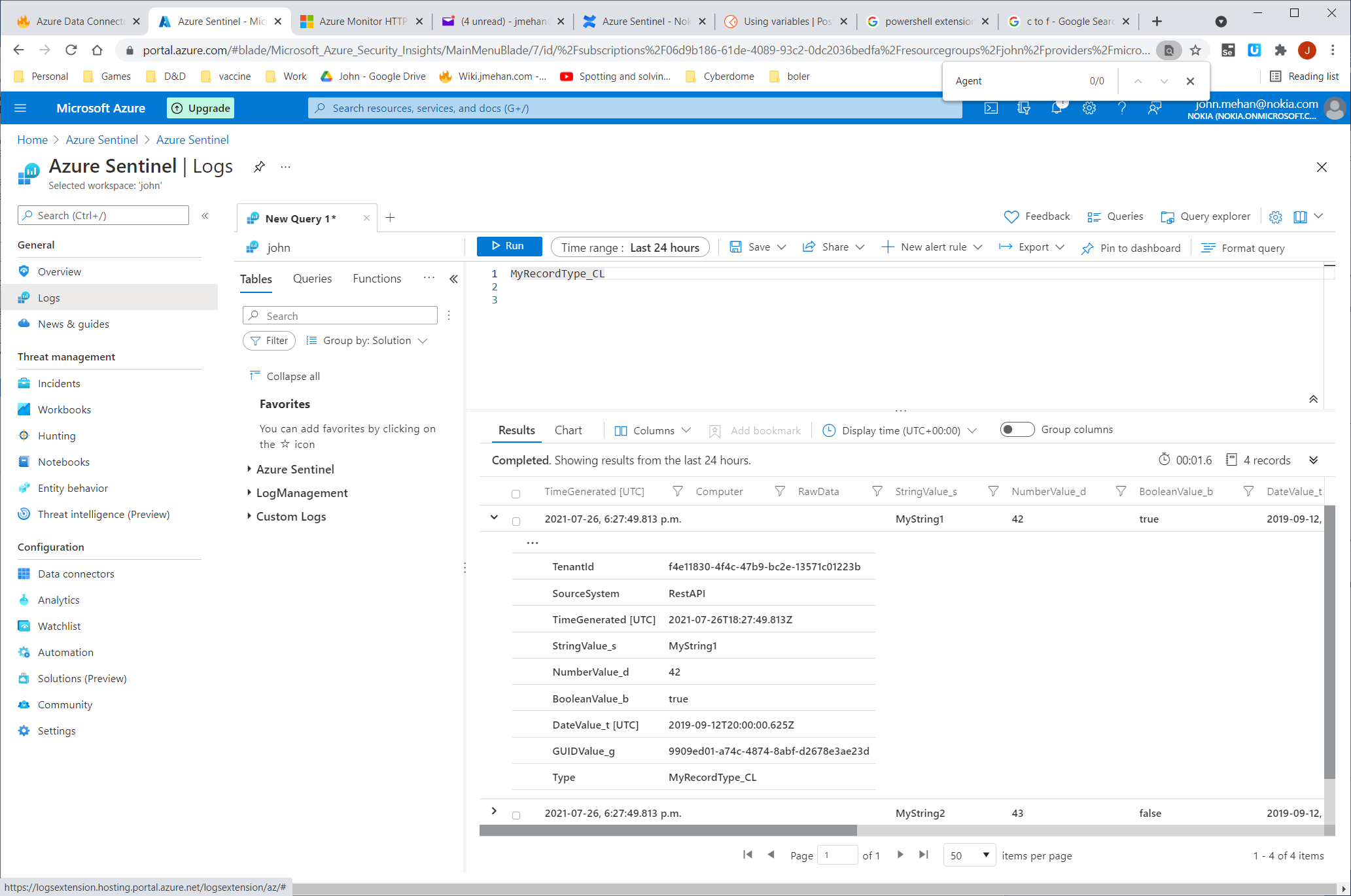
Kafka Connect with Azure Log Analytics Sink Connector
https://www.confluent.de/hub/chaitalisagesh/kafka-connect-log-analytics
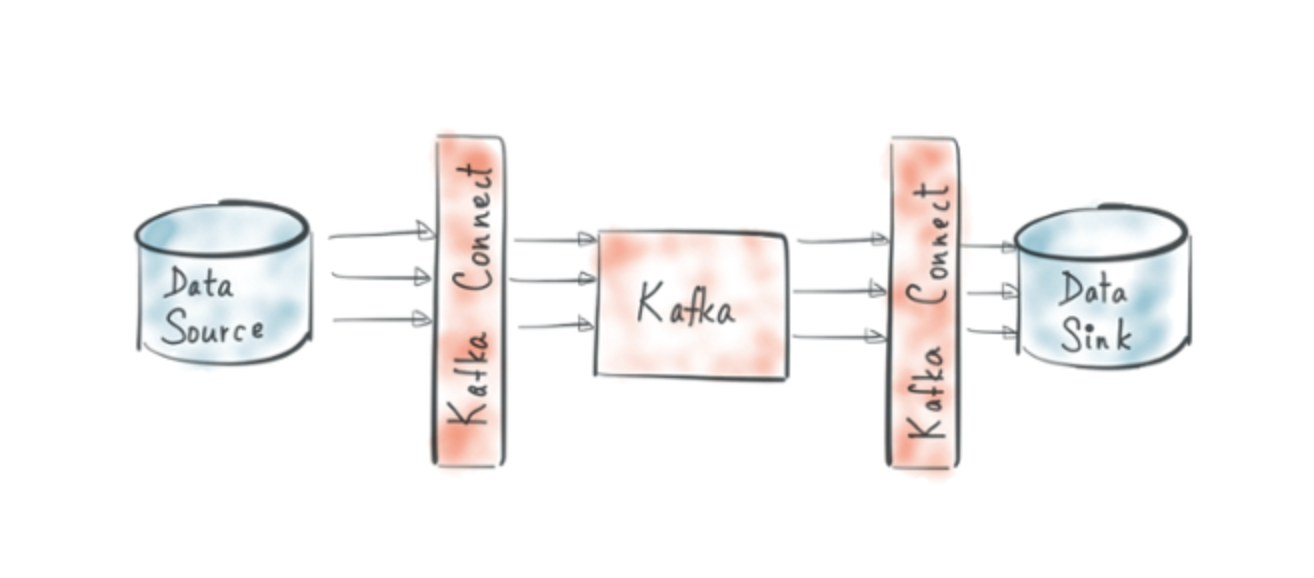
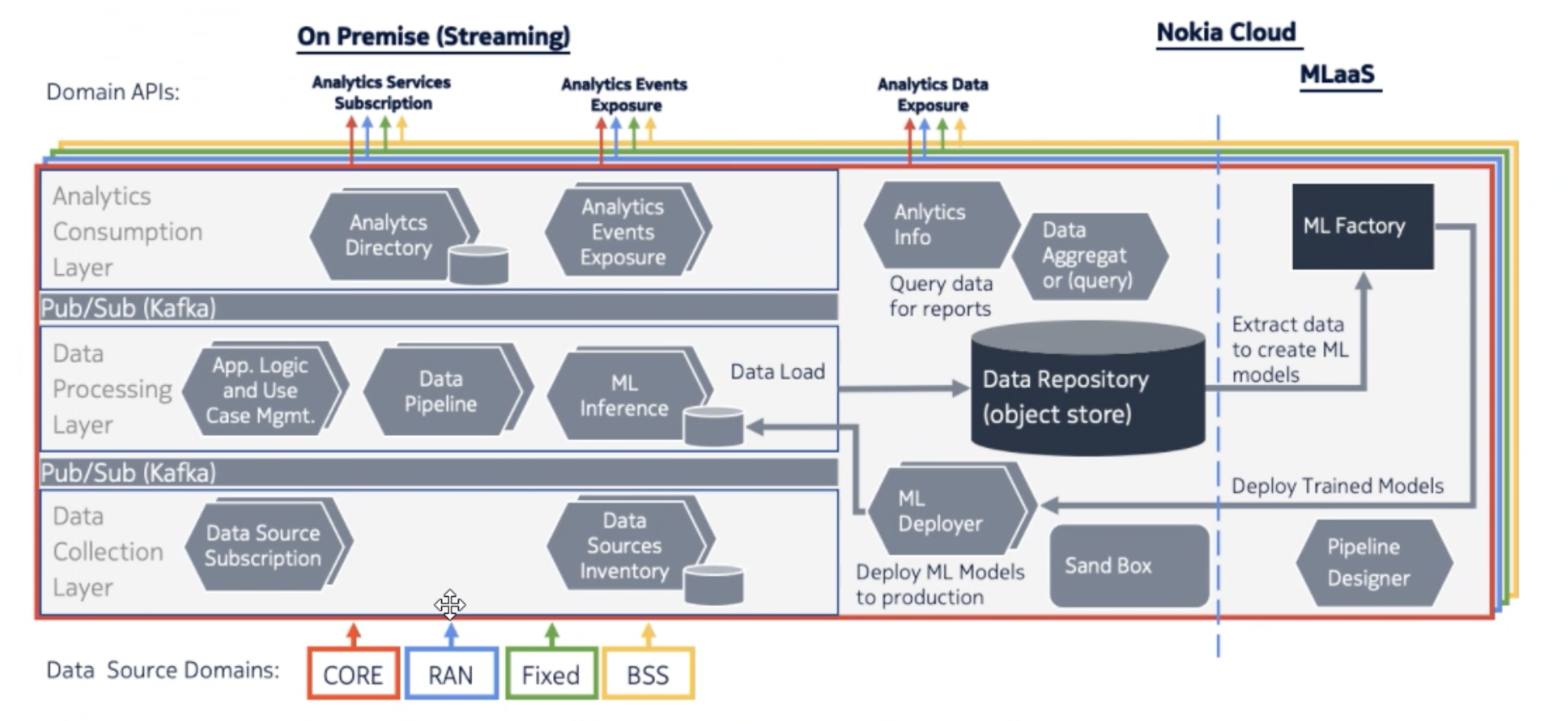
Log Analytics Agent for Linux
https://docs.microsoft.com/en-us/azure/azure-monitor/agents/agent-linux
Pushes data to Azure Data Collector API.
Logstash
https://docs.microsoft.com/en-us/azure/sentinel/connect-logstash
Pushes data to Azure Data Collector API.
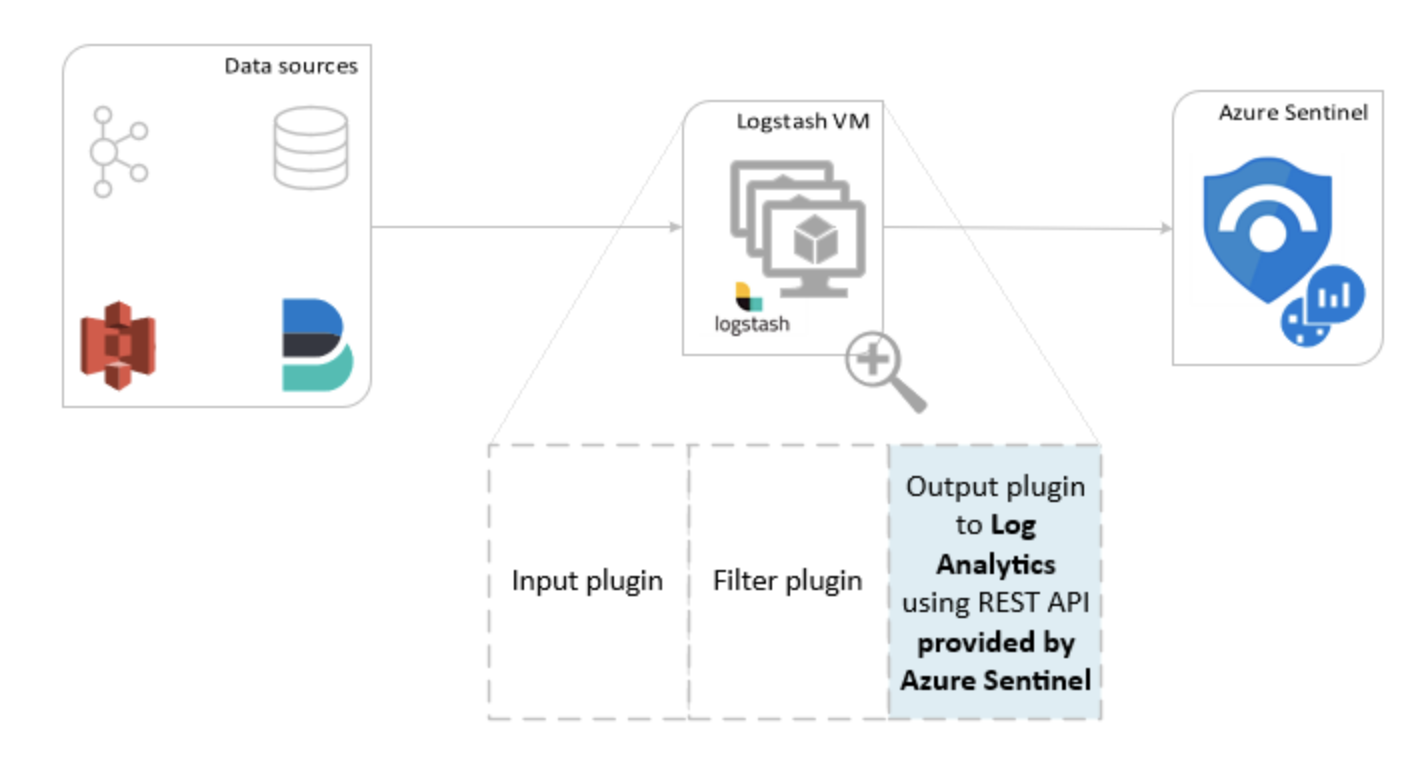
"The components for log parsing are different per logging tool. Fluentd uses standard built-in parsers (JSON, regex, csv etc.) and Logstash uses plugins for this. This makes Fluentd favorable over Logstash, because it does not need extra plugins installed, making the architecture more complex and more prone to errors"
Fluent-bit
https://docs.fluentbit.io/manual/pipeline/outputs/azure
Pushes data to Azure Data Collector API.
References






